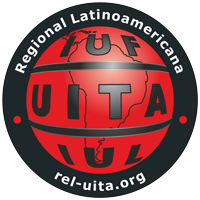On April 27, Rel UITA (IUF Latin America) launched The Meatpacking Plants Pandemics in digital format, a book that was made possible by the support of Sweden’s Union-to-Union. Ahead of the launch of the printed version in São Paulo next week, we spoke about the book with Doctor Roberto Ruiz, the man behind this work.










